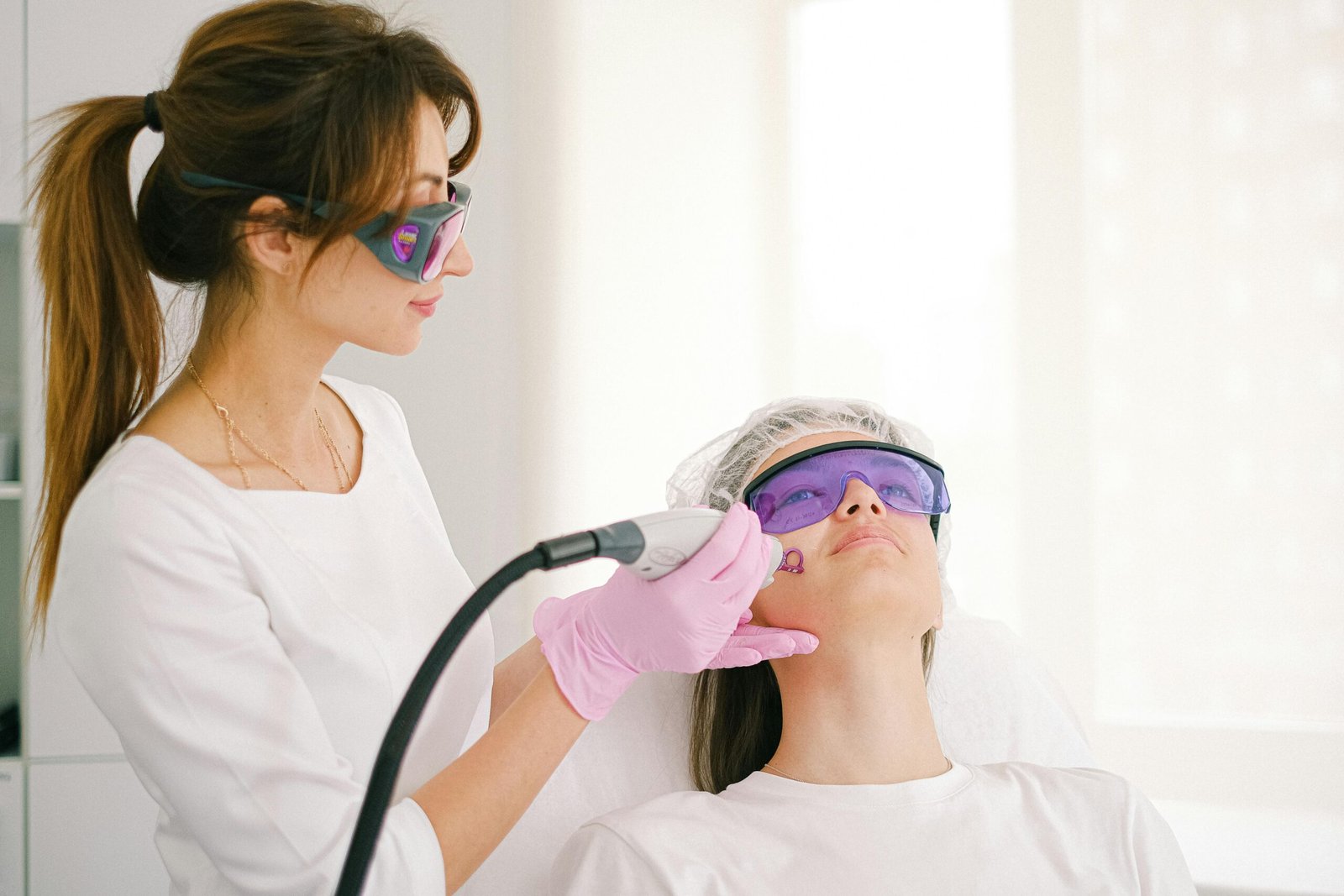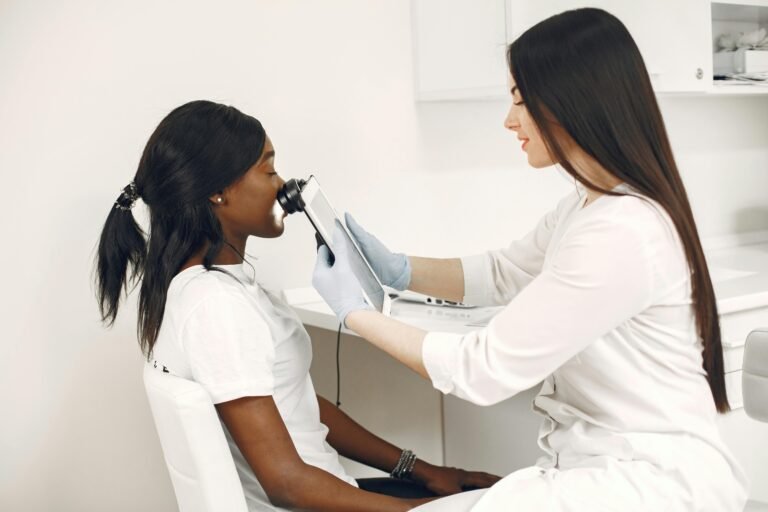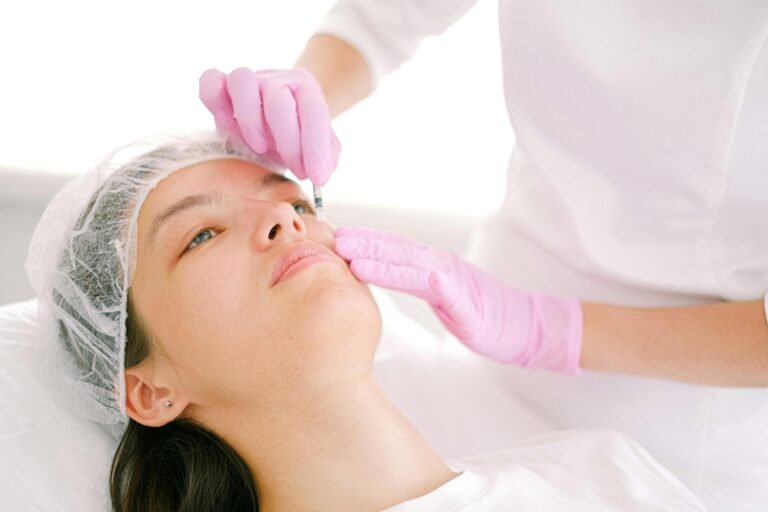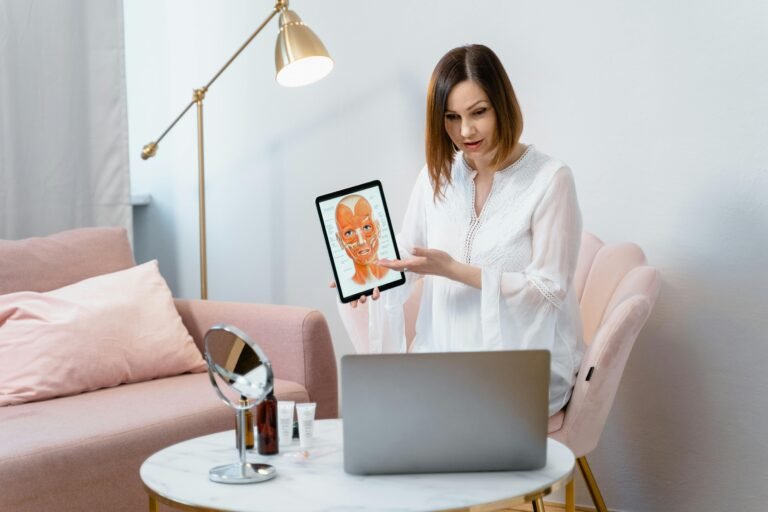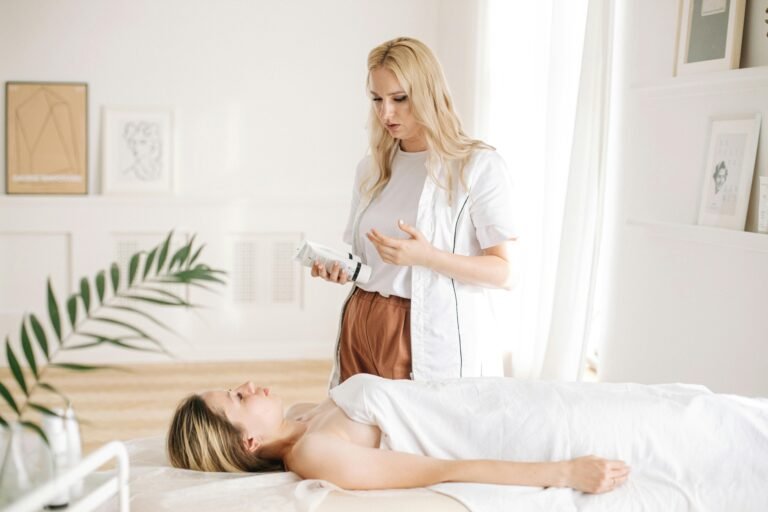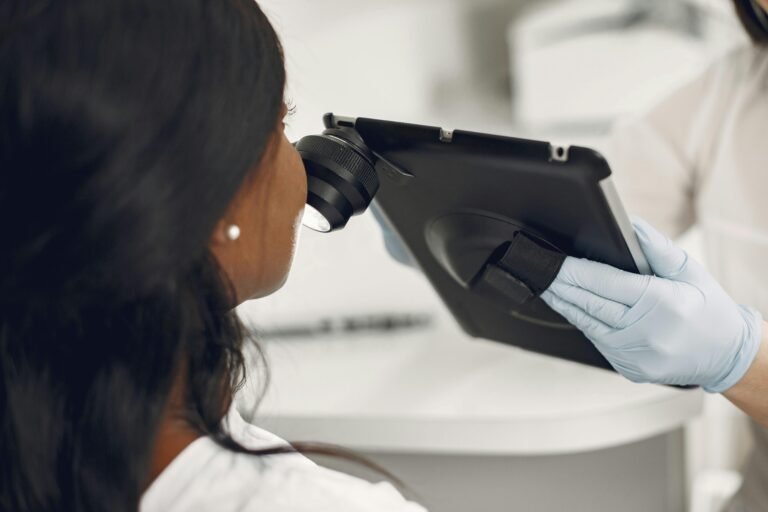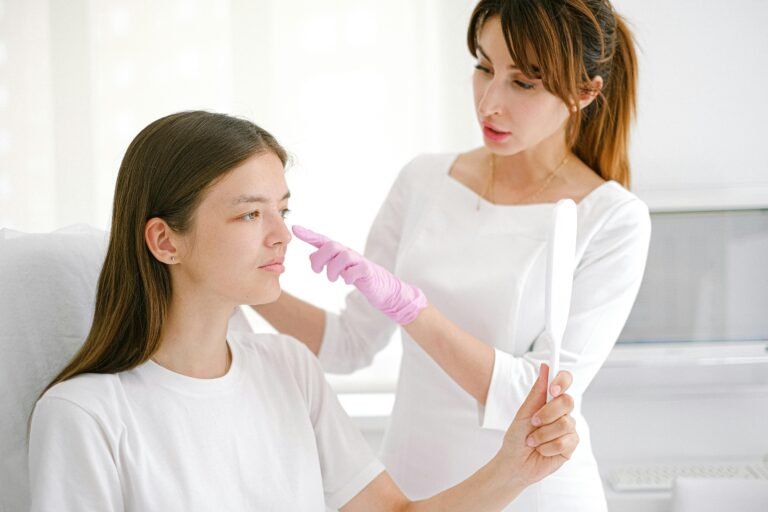Best Dermatologist in Gurgaon for Acne
Your journey to clear skin begins with finding the best dermatologist in Gurgaon for acne—discover the secrets to effective treatment today!
Selecting the right dermatologist for acne treatment is crucial, particularly in a bustling hub like Gurgaon. With various clinics offering specialized services, understanding their unique approaches and the qualifications of their practitioners can significantly impact treatment outcomes. Notably, some dermatologists emphasize personalized care, while others focus on advanced therapeutic techniques. As we explore the top dermatology clinics and their distinctive offerings, it becomes essential to consider what factors truly define the best care for acne management. What insights can we uncover about patient experiences and the effectiveness of these treatments?
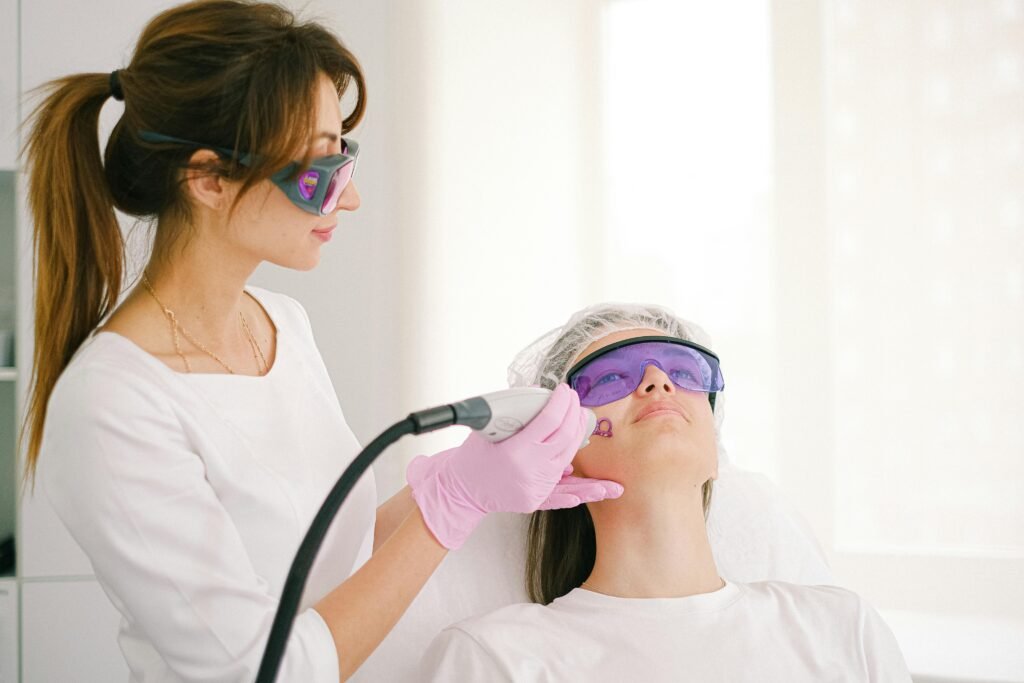
Importance of Choosing the Right Dermatologist
Selecting the right dermatologist is crucial for effectively managing acne and achieving optimal skin health. A qualified dermatologist should possess board certification, specialized training through a residency, and extensive experience in treating acne. Continuous education and membership in professional bodies further signify their commitment to excellence. Furthermore, it is essential to confirm board certification to ensure the dermatologist meets the necessary standards for practice.
Moreover, effective patient collaboration between the dermatologist and the patient is essential for setting realistic treatment expectations. A dermatologist with a good bedside manner fosters open communication, ensuring patients feel comfortable discussing their concerns. Personalized care tailored to individual skin types and conditions enhances treatment efficacy. Additionally, a dermatologist’s expertise can help identify underlying health problems that may be affecting the skin.
Honesty and transparency regarding treatment options are vital; patients should be informed about potential outcomes and limitations. Encouraging second opinions and providing thorough patient education on skincare practices also reflect a dermatologist’s dedication to patient welfare.
Additionally, a reputable dermatologist will offer a range of treatments and access to advanced technologies, which can significantly impact acne management. Regular follow-up care is important for monitoring progress and adjusting treatment as necessary.
Ultimately, choosing the right dermatologist is a foundational step in achieving successful acne treatment and promoting long-term skin health.
Overview of Acne Treatments
When it comes to managing acne, a variety of treatment options are available, tailored to the severity of the condition. Understanding these options can help dispel common acne myths and support effective skincare routines.
- Mild Treatments: Over-the-counter products like benzoyl peroxide and salicylic acid are effective for mild acne. Incorporating gentle cleansing and avoiding harsh products can further help the skin. Additionally, it is important to note that acne affects approximately 85% of individuals aged 12 to 24, highlighting the prevalence of the condition.
- Moderate Treatments: For moderate acne, topical antibiotics combined with benzoyl peroxide are often recommended. Retinoid gels can prevent clogged pores and enhance treatment efficacy through combination therapy.
- Severe Treatments: Severe acne may require oral antibiotics or isotretinoin. Hormone therapy and corticosteroid injections can also be beneficial for specific cases.
- Additional Options: Emerging treatments such as laser therapies, chemical peels, and microneedling can address both active acne and scarring.
Types of Topical Medications
Topical medications play a crucial role in the effective management of acne, offering various options tailored to individual needs and skin types. The primary topical medication types include over-the-counter and prescription options, each serving distinct purposes in acne treatment.
Among over-the-counter options, salicylic acid is effective for mild to moderate acne, promoting exfoliation and unclogging pores. Benzoyl peroxide, another common choice, reduces bacteria and inflammation, though it may irritate sensitive skin. Azelaic acid also helps remove dead skin cells while being gentler on the skin. It is important to note that dermatologist guidance is recommended for appropriate treatment selection, as effectiveness varies by skin type. For severe cases, combination therapies that include both topical and oral medications may be necessary for improved results.
Prescription topical medications include topical retinoids, such as tretinoin and adapalene, which prevent comedone formation and reduce sebum production. Topical antibiotics like clindamycin and erythromycin target the bacteria responsible for acne, often used in conjunction with other treatments for enhanced efficacy.
Hormonal treatments, such as spironolactone, are effective for hormonal acne, while other agents like tazarotene and trifarotene offer additional options for specific acne types.
Oral Medications for Acne
Oral medications for acne provide essential treatment options for individuals struggling with moderate to severe cases. These medications can be categorized into three primary types: oral antibiotics, hormonal treatments, and isotretinoin. Each type serves a specific purpose in managing acne effectively.
- Oral Antibiotic Options: Commonly prescribed antibiotics like doxycycline and minocycline work by reducing bacterial colonization and inflammation in affected follicles. Treatment usually lasts three to four months to mitigate risks of bacterial resistance. Combining benzoyl peroxide with antibiotics may help reduce the risk of antibiotic resistance. Completing the full course of antibiotics is essential to maximize their effectiveness and prevent resistance development.
- Hormonal Acne Treatment: Birth control pills containing estrogen help regulate hormones that contribute to acne, particularly beneficial for women experiencing flare-ups linked to menstrual cycles.
- Oral Isotretinoin: Reserved for severe acne cases, isotretinoin reduces oil production and effectively targets bacteria. It requires careful monitoring due to potential side effects and contraindications, especially during pregnancy.
- Individualized Approach: A dermatologist will tailor the treatment plan, including dosages and duration, based on the patient’s unique needs and conditions.
Regular follow-ups ensure optimal efficacy and safety throughout the treatment process.
Advanced Treatment Procedures
Advanced treatment procedures for acne, such as chemical peels, laser therapy, and microneedling, offer effective solutions for managing and reducing breakouts. Chemical peels can enhance skin texture by removing dead skin cells, while laser therapy targets acne-causing bacteria and reduces inflammation. Additionally, each patient’s case requires individual assessment for optimal treatment, ensuring that the chosen procedure aligns with their specific needs. Microneedling stimulates collagen production, promoting skin healing and improving the appearance of scars. This approach is part of a holistic dermatology philosophy that recognizes the connection between overall health and skin vitality.
Chemical Peels Benefits
Among the various treatment options available for managing acne, chemical peels stand out for their multifaceted benefits. These treatments are not only effective in addressing acne but also provide significant skin rejuvenation benefits.
The primary chemical peel advantages include:
- Effective for Acne: They exfoliate the skin, unclogging pores and reducing inflammation, which is crucial for mild to moderate acne.
- Improves Skin Texture: Chemical peels stimulate new skin cell growth, leading to a smoother skin texture and diminished appearance of acne scars.
- Reduces Scar Visibility: Deep chemical peels, such as TCA peels, enhance collagen production, effectively reducing both the depth and visibility of acne scars.
- Variety of Peels: Different formulations, including salicylic, glycolic, and lactic acid peels, cater to various skin types and acne severities, ensuring a tailored approach.
Laser Therapy Advantages
In addition to chemical peels, laser therapy has emerged as a highly effective option for acne treatment and scar reduction. The laser therapy benefits include significant reduction in acute inflammation and bacteria deep within pimples, which is crucial for managing active acne.
Additionally, it promotes collagen production, aiding in skin rejuvenation by smoothing textural deformities and evening out skin tone.
Another advantage of laser therapy is its ability to reduce sebum production, which further decreases acne outbreaks. For optimal results, multiple treatment sessions may be necessary, depending on the severity of the acne.
Importantly, the procedure requires minimal recovery time, with healing typically occurring within 10 to 21 days.
When addressing acne scars, laser therapy is effective for various scar types, including hypertrophic and atrophic scars. It enhances skin texture and tightens the skin, reducing deep scarring through collagen regeneration.
Fractional lasers offer reduced downtime and are safe for all skin types, while high-frequency lasers directly target active acne.
Microneedling Effectiveness
Microneedling has emerged as an effective treatment option for acne, offering a dual benefit of reducing active breakouts while improving the appearance of acne scars. This advanced procedure has gained traction due to its numerous microneedling benefits, making it a preferred choice among dermatologists.
The effectiveness of microneedling can be summarized in the following points:
- Reduces Active Acne: Expedites healing and reduces inflammation, leading to fewer breakouts.
- Improves Acne Scars: Stimulates collagen and elastin production, resulting in smoother skin texture.
- Permanent Results: Offers longer-lasting improvements compared to traditional treatments like tretinoin.
- Higher Patient Satisfaction: Demonstrates superior satisfaction rates among patients, with significant reductions in acne severity, particularly in comedonal acne.
Clinical studies indicate a remarkable 57% reduction in acne severity after six microneedling sessions, alongside consistent improvements in acne scarring.
The mechanism involves collagen stimulation and inflammation reduction, contributing to the overall effectiveness of this acne treatment. Given its comprehensive benefits, microneedling stands out as a promising option for individuals seeking effective solutions for managing acne and its residual scars.
Factors Influencing Treatment Plans
In developing effective treatment plans for acne, a thorough assessment of acne severity is essential, as it directly influences the choice of interventions.
Additionally, individual skin type plays a crucial role in determining the most suitable treatments, ensuring that options are tailored to each patient’s unique characteristics.
Acne Severity Assessment
Assessing acne severity is crucial in formulating effective treatment plans, as it directly influences therapeutic decisions and patient outcomes. Accurate evaluation relies on various severity indicators and lesion classification, allowing dermatologists to determine the most appropriate interventions.
Key factors in acne severity assessment include:
- Primary Lesions: The presence and count of comedones and papules are significant in grading acne. Comedones alone indicate Grade 1, while papules and comedones together suggest Grade 2.
- Secondary Changes: Postinflammatory changes and scarring play a vital role in severity classification. Extensive scarring is characteristic of Grade 4 acne, necessitating more aggressive treatment options.
- Grading Systems: Tools such as the Global Acne Grading System (GAGS) and Investigator Global Assessment (IGA) provide structured methods for evaluating acne severity, although variability in assessments remains a challenge.
- Treatment Considerations: The intensity of treatment escalates with severity. Mild to moderate cases often respond to topical therapies, while severe cases may require systemic treatments, ensuring tailored strategies for optimal outcomes.
These elements combined facilitate a comprehensive assessment that directly impacts patient care and treatment efficacy.
Individual Skin Type
Understanding individual skin type is often essential for tailoring effective acne treatment plans. Skin type differences significantly influence the choice of treatments, ensuring that patients receive the most suitable care for their specific conditions.
| Skin Type | Recommended Treatments |
|---|---|
| Dry/Sensitive Skin | Creams (e.g., tretinoin cream), avoid gels and heavy lotions. |
| Oily Skin | Gels (e.g., benzoyl peroxide washes), limit creams. |
| Combination Skin | Use a mix of products; light, non-comedogenic options recommended. |
| Normal Skin | Focus on specific acne types; mild to moderate treatments like over-the-counter retinoids. |
For dry and sensitive skin, non-irritating creams are preferred, while oily skin benefits from gels that control excess oil. Combination skin requires balanced treatments that address both oily and dry areas without causing irritation. Normal skin treatments depend on the type of acne, with an emphasis on maintaining a consistent skincare routine. By understanding these skin type differences, dermatologists can develop tailored treatments that effectively manage acne while minimizing irritation and promoting skin health.
Signs You Need a Dermatologist
Recognizing the signs that indicate a need for dermatological care is essential for maintaining skin health. Various symptoms can signal that it’s time to consult a dermatologist, ensuring you receive the appropriate care and treatment.
Here are four key indicators:
- Severe or Persistent Acne: If acne is severe and does not improve with over-the-counter treatments, professional intervention may be necessary.
- Changing Moles: Any unusual changes in moles, such as asymmetry or color alterations, warrant immediate attention to rule out serious conditions.
- Unexplained Skin Issues: Rashes or dryness that persist despite regular treatment can indicate underlying issues that require specialized care.
- Impact on Self-Esteem: If skin conditions, like acne, negatively affect your self-esteem or social life, seeking help from a dermatologist can provide both physical and emotional relief.
Recognizing these signs can facilitate timely care, maximizing dermatologist benefits and promoting better skin health.
Regular consultations are crucial for early detection of skin problems and personalized treatment options, ultimately leading to improved skin vitality.
Key Considerations for Acne Care
Effective acne care involves a multifaceted approach that combines proper hygiene, a consistent skincare routine, lifestyle modifications, and adherence to treatment plans. A fundamental aspect of acne management is maintaining cleanliness.
Gently washing the face with a mild, non-abrasive cleanser twice daily helps remove excess oil and dirt. It is crucial to avoid strong soaps and astringents that may irritate the skin.
In terms of skincare routine, opt for gentle, non-comedogenic products that do not clog pores. Skincare ingredients such as salicylic acid and benzoyl peroxide can be beneficial, but always consult a dermatologist before starting any treatment.
Additionally, one must be cautious of common acne myths, such as the belief that all oils are harmful; some oils can actually provide essential moisture without exacerbating acne.
Lifestyle adjustments are equally important. Regular shampooing, avoiding touching the face, and reducing intake of fried and sugary foods can significantly influence acne severity.
Finally, adherence to prescribed treatments is essential; results may take time, and patience is vital. Consistent application of sunscreen protects the skin and aids in overall acne management, preventing further complications.
Top Dermatology Clinics in Gurgaon
When seeking the best dermatology clinics in Gurgaon, patients can find a variety of reputable options that cater to diverse skin concerns, including acne.
Here are four notable clinics to consider, based on their qualifications and services:
- Skinzest: Led by Dr. Noopur Jain, this clinic specializes in personalized care and holistic dermatology, offering FDA-approved procedures for acne treatment and skin toning.
- Citrine Clinic: Founded by board-certified dermatologist Dr. Niti Gaur, this clinic focuses on cosmetic dermatology and hair loss treatments, utilizing the latest technologies for customized skincare plans.
- Estique Clinic: Headed by renowned dermatologist Dr. Neha Sharma, Estique Clinic offers comprehensive care for various skin conditions, including acne, in a serene and luxurious environment.
- Apollo 247 Clinics: Featuring experienced dermatologists like Dr. Pragya Gupta, this clinic provides online consultations and treats a wide range of skin issues, ensuring accessibility and convenience.
When making clinic comparisons, it is essential to consider dermatologist qualifications, as they play a crucial role in the effectiveness of treatment and patient satisfaction.
Patient Experiences and Testimonials
Patient experiences and testimonials provide valuable insight into the effectiveness of acne treatments offered by dermatologists in Gurgaon.
Many individuals share real success stories that highlight their personal journeys, showcasing the significant impact these treatments have had on their skin and overall confidence.
These narratives not only reflect the quality of care provided but also demonstrate the diverse range of treatment options available to address various acne concerns.
Real Success Stories
Transforming their skin and regaining confidence, many patients have shared their success stories after receiving treatment for acne from top dermatologists in Gurgaon. These patient transformations highlight the effectiveness of personalized care and advanced treatments provided by leading specialists.
- Dr. Neha Sharma at Estique Clinic has garnered numerous positive reviews, with patients praising her ability to achieve clear skin outcomes through tailored treatments.
- Dr. Niti Gaur at Citrine Clinic is celebrated for her comprehensive approach, creating individualized plans that have resulted in high patient satisfaction and notable improvements.
- Dr. Noopur Jain at Skinzest Clinic has received accolades for her effective treatments, with patients sharing stories of significant skin enhancements and long-lasting results.
- Apollo 24|7 dermatologists are recognized for their holistic care, ensuring that patients feel empowered and informed throughout their journey to better skin.
These testimonials not only affirm the expertise of these dermatologists but also serve as inspiring success stories for others facing similar challenges. The transformative experiences of these patients are a testament to the high-quality care available in Gurgaon.
Treatment Impact Stories
The journey to clearer skin often involves a combination of effective treatments and personal resilience. Many patients have reported substantial improvements in their acne conditions, with 70% experiencing a significant reduction in acne severity within just 3-6 months.
Treatment innovations, such as laser therapy and customized chemical peels, have contributed to better skin texture, with individuals noting smoother and brighter skin after these procedures.
Moreover, a notable 40% reduction in acne scarring was achieved through a combination of oral medications and advanced laser techniques. Patient engagement plays a crucial role in these outcomes, as 80% of participants expressed satisfaction with their results, largely attributing their newfound self-confidence to their treatment experiences.
Comprehensive care, including tailored treatment plans and ongoing support, has proven effective in fostering long-term success. Patients benefit from educational resources and lifestyle adjustments that empower them to manage their skin health actively.
The focus on safe, US FDA-approved treatments ensures that individuals receive reliable care in a clean environment, ultimately leading to documented success in addressing a variety of acne cases.
Personal Journey Narratives
Clear skin often results from a combination of effective treatment and personal dedication, as evidenced by numerous patient experiences. Many individuals have shared their journeys, highlighting the expertise of dermatologists in Gurgaon who have transformed their skin and lives.
- Effective Management: Patients commend Dr. Neha Sharma for her prompt diagnosis and management strategies, effectively reducing active acne lesions and scarring.
- Professional Counseling: Testimonials reveal appreciation for her holistic approach, which focuses on understanding the root causes of skin issues and delivering minimal yet effective treatments.
- Advanced Procedures: Experiences with advanced treatments like RF microneedling and chemical peels have led to significant improvements under Dr. Neha’s care.
- Patient Satisfaction: High satisfaction levels are reported by patients who have achieved long-term relief from acne and related concerns, emphasizing the importance of tailored care.
These shared experiences illustrate how personalized treatment plans and a comprehensive approach can significantly impact individuals’ journeys toward clear skin.
The expertise and dedication of dermatologists in Gurgaon continue to inspire hope and confidence among those struggling with acne.
Frequently Asked Questions
What Qualifications Should I Look for in a Dermatologist?
When seeking a dermatologist, prioritize credentials such as an MBBS or MD in dermatology, board certification, and specialized training in acne treatment. Consider their experience, professional affiliations, and ongoing education in dermatological advancements.
How Long Does Typical Acne Treatment Take to Show Results?
The acne treatment timeline typically shows results within 4 to 8 weeks for medical therapies and 8 to 12 weeks for at-home regimens. Factors influencing results include treatment type, skin condition, and adherence to prescribed protocols.
Are There Any Side Effects From Acne Treatments?
Acne treatments can induce various side effects, including dryness, irritation, and increased sun sensitivity. While natural remedies may present fewer risks, treatment costs and effectiveness vary significantly, necessitating careful consideration before proceeding with any regimen.
Can Diet Influence Acne Breakouts?
Dietary changes can significantly influence acne breakouts by mitigating acne triggers such as high-glycemic index foods and dairy products. Adopting a balanced diet rich in fruits, vegetables, and omega-3 fatty acids may help reduce inflammation and improve skin health.
How Often Should I See a Dermatologist for Acne?
For effective acne management, treatment frequency should involve dermatologist visits every 3-4 months. This allows for monitoring medication efficacy, adjusting treatment plans, and ensuring optimal care tailored to the individual’s skin condition and needs.
